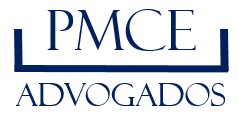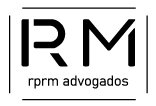Best Brokerage Lawyers in Porto
Share your needs with us, get contacted by law firms.
Free. Takes 2 min.
Free Guide to Hiring a Real Estate Lawyer
List of the best lawyers in Porto, Portugal
About Brokerage Law in Porto, Portugal
Brokerage law in Porto, Portugal refers to the legal framework that governs the activities of brokers - individuals or companies acting as intermediaries between buyers and sellers in transactions involving goods, services, real estate, insurance, finance, and other sectors. Since Porto is a vibrant economic hub in northern Portugal, brokerage activities are prevalent in real estate, financial services, shipping, and import-export businesses. The legal landscape is shaped by national Portuguese law, EU regulations, and specific local rules applicable in Porto.
Why You May Need a Lawyer
Engaging in brokerage activities often involves complex legal agreements, financial regulations, and contracts. You may need a lawyer specializing in brokerage law in situations such as:
- Negotiating or drafting brokerage agreements with clients or partners
- Resolving disputes over commissions or contractual obligations
- Ensuring compliance with local and national licensing requirements
- Handling regulatory inspections by government bodies
- Mitigating liability in case of claims of negligence or misrepresentation
- Transferring or terminating existing brokerage contracts
- Understanding tax implications of brokerage transactions
- Advice on employment or consultancy relationships with agents or sub-brokers
- Protecting intellectual property or confidential information involved in deals
A legal professional can help you avoid costly mistakes and ensure your activities align with all applicable laws.
Local Laws Overview
In Porto, brokerage activities are regulated by a combination of the Portuguese Civil Code, Commercial Code, sector-specific laws (such as the Real Estate Brokerage Law), and various EU directives. Key aspects include:
- Licensing: Brokers must meet certain qualification criteria and, in many industries, be registered or licensed by relevant authorities (e.g., real estate or financial services regulators).
- Contracts: Brokerage agreements, whether written or oral, are binding. The law often requires clarity on terms such as commissions, scope of service, and duration.
- Commission: Brokers are typically entitled to a commission if they facilitate a successful transaction, but disputes can arise over the amount or timing of payment.
- Agent Responsibilities: Brokers owe duties of loyalty and care to their clients, including honest disclosure, confidentiality, and avoiding conflicts of interest.
- Consumer Protection: Laws protect clients and consumers from misleading advertising or unfair contractual terms, especially in real estate and finance.
- Anti-Money Laundering: Brokers in financial and real estate sectors must comply with strict anti-money laundering requirements.
- Local Procedures: Porto municipal regulations may include additional reporting or registration requirements for certain brokerage activities.
Failing to comply with these laws can result in fines, professional sanctions, or civil liability.
Frequently Asked Questions
What types of brokerage activities are common in Porto?
Common brokerage activities in Porto include real estate transactions, financial and investment services, insurance brokerage, shipping and freight forwarding, and vehicle trading. Real estate brokerage is particularly active due to the local property market.
Do I need a license to operate as a broker in Porto?
Yes, most types of brokerage - especially in real estate, finance, and insurance - require a license or registration with the appropriate authority. Failing to obtain a license can result in fines and invalidated agreements.
How is broker commission usually calculated?
Commission is typically a percentage of the transaction value, agreed upon in advance and stipulated in the brokerage contract. Rates and payment terms vary by industry and are negotiable.
What happens if there is a dispute over a commission?
Disputes are usually resolved through negotiation, mediation, or, if necessary, litigation. A lawyer can assist in interpreting the contract, assessing evidence, and representing you in proceedings.
Can a broker represent both parties in a transaction?
Brokers may represent both buyer and seller with informed consent from both parties, but must fully disclose potential conflicts of interest and act impartially. Some sectors restrict dual representation.
Are brokerage contracts always required to be in writing?
While oral contracts may be valid, written agreements are strongly recommended to prevent misunderstandings and provide clear evidence in case of disputes. Some sectors, such as real estate, require written agreements by law.
What should a brokerage contract include?
Essential terms include identification of the parties, scope of service, commission structure, duration, confidentiality clauses, and procedures for dispute resolution.
What are the main risks for brokers in Porto?
Main risks include liability for negligent advice, contractual breaches, failure to comply with regulatory requirements, tax issues, and reputational harm due to dissatisfied clients.
What is the role of anti-money laundering regulations for brokers?
Brokers involved in high-value transactions, particularly in real estate and finance, must perform due diligence on clients, report suspicious activity, and maintain records in compliance with anti-money laundering laws.
How can I find a qualified lawyer for brokerage matters in Porto?
Seek a lawyer experienced in commercial or brokerage law, preferably with local expertise in Porto. Local bar associations, professional directories, or referrals can help you find a suitable practitioner.
Additional Resources
Here are some useful resources and organizations related to brokerage law in Porto:
- Order of Portuguese Lawyers (Ordem dos Advogados): The national bar association, providing information on qualified lawyers and legal rights.
- Associação dos Profissionais e Empresas de Mediação Imobiliária de Portugal (APEMIP): The Portuguese association for real estate mediation professionals.
- Instituto dos Mercados Públicos, do Imobiliário e da Construção (IMPIC): Regulates real estate brokerage and mediation services.
- Comissão do Mercado de Valores Mobiliários (CMVM): The Portuguese securities market commission, overseeing financial brokerage activities.
- Porto Municipal Chamber: Offers information and assistance for local business licensing and compliance in Porto.
- Consumer Protection Bodies: Organizations like DECO provide legal guidance and mediate in disputes involving consumers and brokers.
Next Steps
If you need legal assistance for a brokerage matter in Porto, follow these steps:
- Identify the specific brokerage activity and legal issue you are facing.
- Gather all relevant documents, such as contracts, correspondence, licenses, and transaction records.
- Consult with a qualified lawyer who specializes in commercial or brokerage law in Porto.
- Prepare clear questions and objectives for your initial legal consultation.
- Follow your lawyer's advice on next steps, which may include contract review, negotiation, regulatory filings, or dispute resolution proceedings.
- Stay informed about legal requirements and ensure ongoing compliance with all relevant laws and regulations.
Proactively seeking legal guidance can help you navigate complex brokerage transactions and protect your interests in Porto, Portugal.
Lawzana helps you find the best lawyers and law firms in Porto through a curated and pre-screened list of qualified legal professionals. Our platform offers rankings and detailed profiles of attorneys and law firms, allowing you to compare based on practice areas, including Brokerage, experience, and client feedback.
Each profile includes a description of the firm's areas of practice, client reviews, team members and partners, year of establishment, spoken languages, office locations, contact information, social media presence, and any published articles or resources. Most firms on our platform speak English and are experienced in both local and international legal matters.
Get a quote from top-rated law firms in Porto, Portugal — quickly, securely, and without unnecessary hassle.
Disclaimer:
The information provided on this page is for general informational purposes only and does not constitute legal advice. While we strive to ensure the accuracy and relevance of the content, legal information may change over time, and interpretations of the law can vary. You should always consult with a qualified legal professional for advice specific to your situation.
We disclaim all liability for actions taken or not taken based on the content of this page. If you believe any information is incorrect or outdated, please contact us, and we will review and update it where appropriate.
















